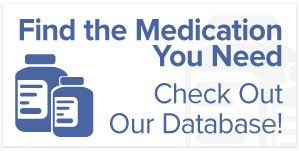Crohn’s disease is one of the most common diseases of the GI tract and bowel system. In fact, many researches show that the occurrence of the disease is increasing with time, and today, over half a million people in the US suffer from this issue. So what really is Crohn’s disease, and how can one identify it? Well, let’s find out the common tell-tale symptoms of Crohn’s disease that can help determine the disease.
What is Crohn’s Disease?
Crohn’s disease is a chronic inflammatory bowel disease (IBD) that leads to swelling in the tissues of your digestive tract, causing inflammation, and results in a series of other severe issues, including abdominal pain, diarrhea, and fatigue. The inflammation caused by Crohn’s disease involves various areas of your digestive tract; for some people, it can be the small intestine; for others, the inflammation can spread into the deeper layers of the bowel.
There is no exact cause for Crohn’s except that it can either be hereditary or due to a low-functioning immune system – usually due to a virus or bacteria. Similarly, there is also no definite cure for Crohn’s disease, but various therapies and combinations of medicines can help reduce the signs and symptoms.
Signs and Symptoms of Crohn’s Disease
Crohn’s disease symptoms are not limited to the GI tract. The patient can experience symptoms in other parts of their body as well. Other than that, as mentioned above, Crohn’s disease can develop in either your small intestine or large intestine.
Crohn’s Disease – Large Intestine or colon
If a person has developed Crohn’s disease in their large intestine or colon, they may experience the following symptoms.
Symptoms of the GI Tract
- Severe stomach pain – or cramping
- Bloating or swelling in the stomach
- Continuous diarrhea
Symptoms in the Rest of the Body
- Loss of appetite
- Sudden and unexpected weight loss(usually due to appetite)
- Fever
- Lethargy and tiredness
- Anemia
- Nausea
- Mouth ulcers
- Mucus and blood in stool
- Redness in the eyes
- Tender, strange-colored bumps under the skin
- Joint pain and arthritis
Advanced Symptoms
Sometimes the symptoms can lead to:
- Fistulas
- Abscesses
Crohn’s Disease – Small Intestine
If Crohn’s disease affects an individual’s small intestine, then they may experience the following symptoms.
Symptoms of the GI Tract
- Abdominal pain and cramps
- Extreme diarrhea
- Malabsorption (when the body cannot absorb nutrients)
- Lower appetite
Advanced or Severe Symptoms
- Fistulas that may lead to:
- Feculent discharge by the vagina
- Air bubbles in the urine
- UTI (urinary tract infection)
- Gallstones in the gallbaldder
When Is it The Right Time to Meet a Doctor?
Even though there is no definite cure for Crohn’s disease, patients need to know that managing those symptoms is extremely crucial. Not only are these symptoms painful and hinder everyday life, but with time can deteriorate your body further.
Therefore, if you experience the symptoms mentioned above and feel they are getting advanced or lasting for a longer period, it’s best to consult a doctor ASAP. And if you are worried about the affordability of your medical treatment, you can contact Rx Helper – which is a patient prescription assistance company.



